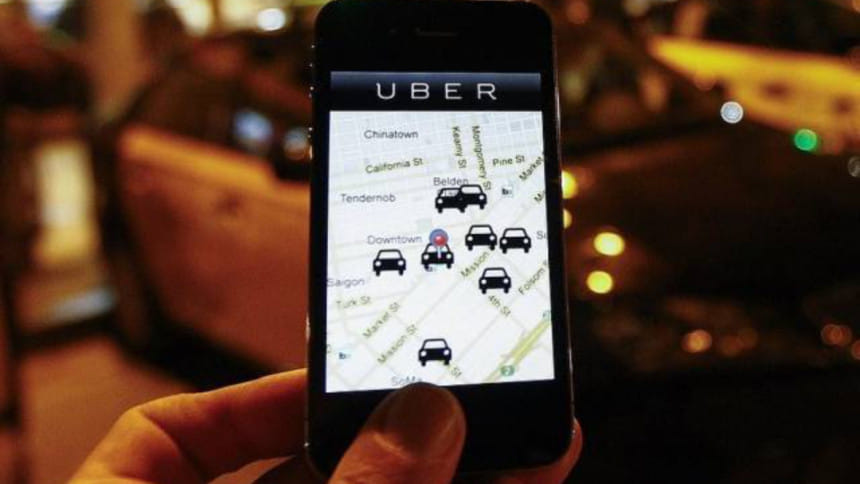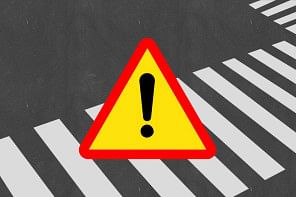Uber: A customer oriented service

Bangladesh Road Transport Authority's (BRTA) hostility towards Uber is hardly surprising. The same battle has been raging in many capitals of the world where the traditional taxi companies have lobbied hard to deprive customers from the tech-centric service Uber provides. The resistance that comes from our BRTA is unhelpful simply because our traditional modes of public transportation have been woefully lacking in providing cheap and safe travel to the vast majority of city dwellers. It has been a week that Uber launched its services and user feedback has been overwhelmingly positive. With fares roughly 20 – 25 percent higher than CNG auto-rickshaws and fast response times coupled with comfortable vehicles and well-mannered drivers, it is set to revolutionise the way people travel in this city.
The so-called taxi services we have had over the years have been sketchy at best. Some 11,260 cabs were introduced in Dhaka and Chittagong in 1997 but most became extinct in a few years' time. Ever since then efforts to introduce taxi cabs have not met with success. The latest initiative launched in 2014 got some 65 yellow cabs belonging to two companies on Dhaka streets. That number is so low that it doesn't even compute. Hardly any wonder that they are never available and the cost so exorbitant that they are more akin to upper class limousine services rather than regular taxis one finds in other cities of the world. In total there are about 500 taxi cabs plying Dhaka streets. With the exception of the newly inducted 65, the rest are rickety, rundown vehicles that resemble carts-n-wheels that offer little in way of comfort or safety.
Uber gives us a way out of the usual experience. It is a technology-driven service that allows passengers to rate drivers and the ride itself. The platform uses smart phones showing routes, estimated times of arrival and costs, making it possible for users to make an informed decision. The most refreshing part of the experience is that when a customer confirms a ride, s/he is assured of the car arriving within a stipulated timeframe. For a lot of customers, safety is of paramount importance, especially women and the elderly. For many of us who have to literally beg CNG drivers to get us from Point A to Point B and invariably haggle over prices despite meters being present, the new service offers much needed respite.
Services like Uber pose a challenge to the monopolistic, archaic and vastly inefficient transportation systems and that is what has perhaps got BRTA rattled. That is perhaps why we are suddenly hearing about the "illegality" of it all. But let us be frank here. Who in their right minds want to wait long hours, suffer insufferably rude drivers, pay for air conditioned taxis which seldom have working air-cooling and be on the edge the whole time, hoping that the driver of the vehicle will deliver them to the destination without any commotion en-route. These so-called taxi services have had it too good for too long and now that a more efficient and cost effective rival has arrived on the market, we have them ganging up hand in glove with authorities to take it offline. This is a scenario that has been played out in other cities in other countries and it has not succeeded.
As for BRTA's allegation that Uber must be registered to be legal let's get a few facts clear. To be a taxi service the cars have to be registered under a company. Uber itself doesn't maintain a fleet or own any car. It links already existing rent-a-cars with users of the app. BRTA's contention is that these cars are privately owned but used for commercial purpose and so should have route permits. These rent-a-cars are already registered separately with the BRTA as private commercial vehicles and so there is no issue of legality.
Before we are lectured on "illegality" of Uber, perhaps authorities would care to explain to us why successive governments have failed to provide Dhaka and Chittagong cities with a workable taxi service. Why thousands of working executives have had to put up with the pains of travelling to and fro from work in less than secure and hugely uncomfortable vehicles for decades. Dhaka city in particular has now mushroomed into a megacity boasting a population of 20 million without a working taxi service, no metro rail and a derelict bus service. It also happens to be a city where the majority of city roads are clogged with private passenger vehicles. Uber coming to town was only a matter of time. We hope that good sense will prevail amongst policymakers and they will allow such services that have the potential to resolve years of chronic transport problems that have plagued city dwellers.
The writer is Assistant Editor, The Daily Star.

 For all latest news, follow The Daily Star's Google News channel.
For all latest news, follow The Daily Star's Google News channel. 



Comments